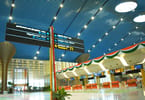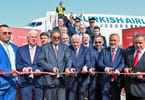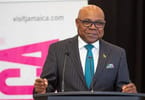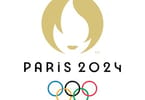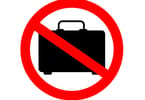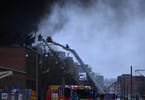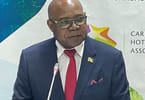Southwest Airlines and American Airlines have overhauled maintenance practices after a string of safety lapses disclosed earlier this year, but the carriers are now sparring with regulators over how much they should be fined for those mistakes.
The moves underscore the complicated relationship that has emerged with the Federal Aviation Administration as the carriers seek to put the safety issues that emerged last spring and summer behind them. Both Southwest Airlines Co. and AMR Corp.’s American Airlines are paying closer attention to government safety mandates. At the same time, they are also trying to minimize their exposure to financial damages.
Southwest sparked a federal enforcement crackdown when it acknowledged flying tens of thousands of passengers in 2007 on some four dozen jets that hadn’t received mandatory checks for potential fuselage cracks. Those lapses led to massive flight cancellations, congressional criticism and erosion of public confidence in the FAA.
Nicholas Sabatini, the FAA’s top air-safety official at the time, expressed “outrage and shock” at what he called “the completely unacceptable situation” of missed inspections.
Barely eight months after those revelations, Southwest is investing close to $1 million to rewrite and update its maintenance manuals. The largest U.S. low-cost carrier also has created a maintenance-compliance team, operating separately from line mechanics and managers, to alert senior Southwest executives about possible new slip-ups.
“We’ve moved thoroughly and expeditiously to make sure that these types of problems don’t ever happen again,” said Ron Ricks, the airline’s executive vice president for corporate services.
But Southwest is also battling a record $10.2 million penalty the FAA initially proposed in March. Recently, Southwest has revved up its rhetoric attacking the agency. “It’s not defiant to assert your legal rights and defend yourselves against a penalty that isn’t fair or equitable based upon the facts,” Mr. Ricks said in an interview last week.
That is a shift from the way Southwest reacted when news of the safety lapses first emerged. Southwest Chief Executive Gary Kelly apologized to customers, made conciliatory statements promising to cooperate fully with regulators and said his team already had “approached the FAA to work with them to settle” outstanding enforcement issues.
FAA officials say they are continuing to discuss the matter with Southwest, and haven’t referred the case to the Justice Department for legal action.
Notwithstanding its defensive comments, the carrier and its outside legal team may want to avoid such a fight because it would likely dredge up information about more than 1,000 passenger flights by Southwest jets that the agency later said hadn’t been properly inspected.
A similar dynamic is emerging at American, which has boosted its efforts to comply with federal regulations even as it prepares to argue that the size of future FAA penalties should be reduced. Over the summer, the FAA forced American to temporarily ground its entire McDonnell Douglas MD-80 fleet for failing to properly fix electrical wiring that government inspectors believed posed potential hazards of fires and fuel-tank explosions. Stung by the resulting public outcry and congressional criticism, American brought in a team of consultants to help revamp inspection and repair procedures across the company.
The airline replaced a senior maintenance official last month and is warning mechanics they must now follow “verbatim” the language included in FAA airworthiness directives. Long before that occurred, American’s in-house engineers began distributing guidance to make sure mechanics strictly carry out FAA safety fixes. “Now, the instructions are gone over with a fine-tooth comb before the work is even done,” according to American spokesman Tim Wagner.
Seeking to further ensure compliance, American has ordered mechanics to attend special training sessions stressing the importance of following federal regulations to the letter. Next month, some repairs also will require paperwork showing which part of the maintenance manual was used and that the supervisor who signed off on the work had the necessary credentials.
The change already can be felt at American’s hub at New York’s John F. Kennedy International Airport. Two mechanics there recently had their licenses temporarily suspended by the FAA for failing to properly replace an aircraft’s nose-gear tire. According to union officials, several more mechanics are under investigation for the same mistake, which can result in excessive landing-gear vibration.
“It amounts to a seismic shift,” according to a mechanic, with both the company and the FAA “promoting full compliance and warning against shortcuts.”
Still, American could be hit with an unprecedented, large penalty in coming months. Based on preliminary calculations by local regulators and the airline’s own experts, some American officials privately fret the penalty could end up between $20 million and $30 million.
According to people familiar with the matter, American plans to argue that changes it has made should significantly reduce the amount. American and the FAA declined to comment on the matter.
WHAT TO TAKE AWAY FROM THIS ARTICLE:
- A similar dynamic is emerging at American, which has boosted its efforts to comply with federal regulations even as it prepares to argue that the size of future FAA penalties should be reduced.
- The moves underscore the complicated relationship that has emerged with the Federal Aviation Administration as the carriers seek to put the safety issues that emerged last spring and summer behind them.
- Stung by the resulting public outcry and congressional criticism, American brought in a team of consultants to help revamp inspection and repair procedures across the company.



